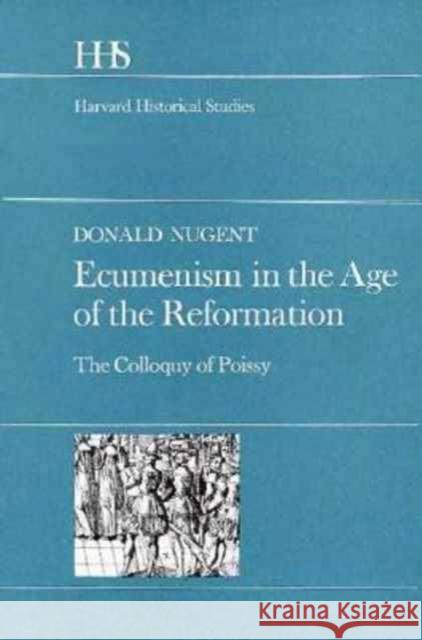Ecumenism in the Age of the Reformation: The Colloquy of Poissy » książka
Ecumenism in the Age of the Reformation: The Colloquy of Poissy
ISBN-13: 9780674237254 / Angielski / Twarda / 1974 / 258 str.
Contemporary ecumenism is a revival of a Reformation ideal. The Colloquy of Poissy was the last great expression expression of that ideal. At the colloquy, held in1561 on the eve of the French religious wars, revived Catholicism and emergent international Protestantism met in an attempt to establish peace, unity, and reconciliation of differing viewpoints. Ahistory of this great conference reveals how unfinished was the Reformation and how tragic a turnit had taken.This work on the colloquy presents the dialecticalcomplexities of the sixteenth-century theology--atheology that had emerged with binding strands ofreligious idealism and political interest. Theologywas, indeed, the medium of discourse, but it was notan end in itself. Rather, it was a means to a highergoal: religious reconciliation.The present analysis, therefore, is not so much astudy in the abstractions of theology as it is a studyin ecumenism. Poissy is placed in a larger historicalbackground and the author carefully and criticallyweighs all factors which affected the chances forreligious unity. Within this larger context, he arguesthat the colloquy placed the participants at the finalcrossroads of the Reformation. When it was over theReformation was sealed and the Counter-Reformation signaled.Nugent's approach is revisionist; his theologicalorientation is Erasmian, ecumenical, and speculative. He shows that ecumenism has been effectivelyand banefully excised from historiography andargues that it must be reintegrated into the story ofthe Reformation. Because we live in a new age ofecumenism, the author's insights and conclusionsare especially appropriate. We have now that keenand historical dimension which cannot but help illuminate contemporary life.











